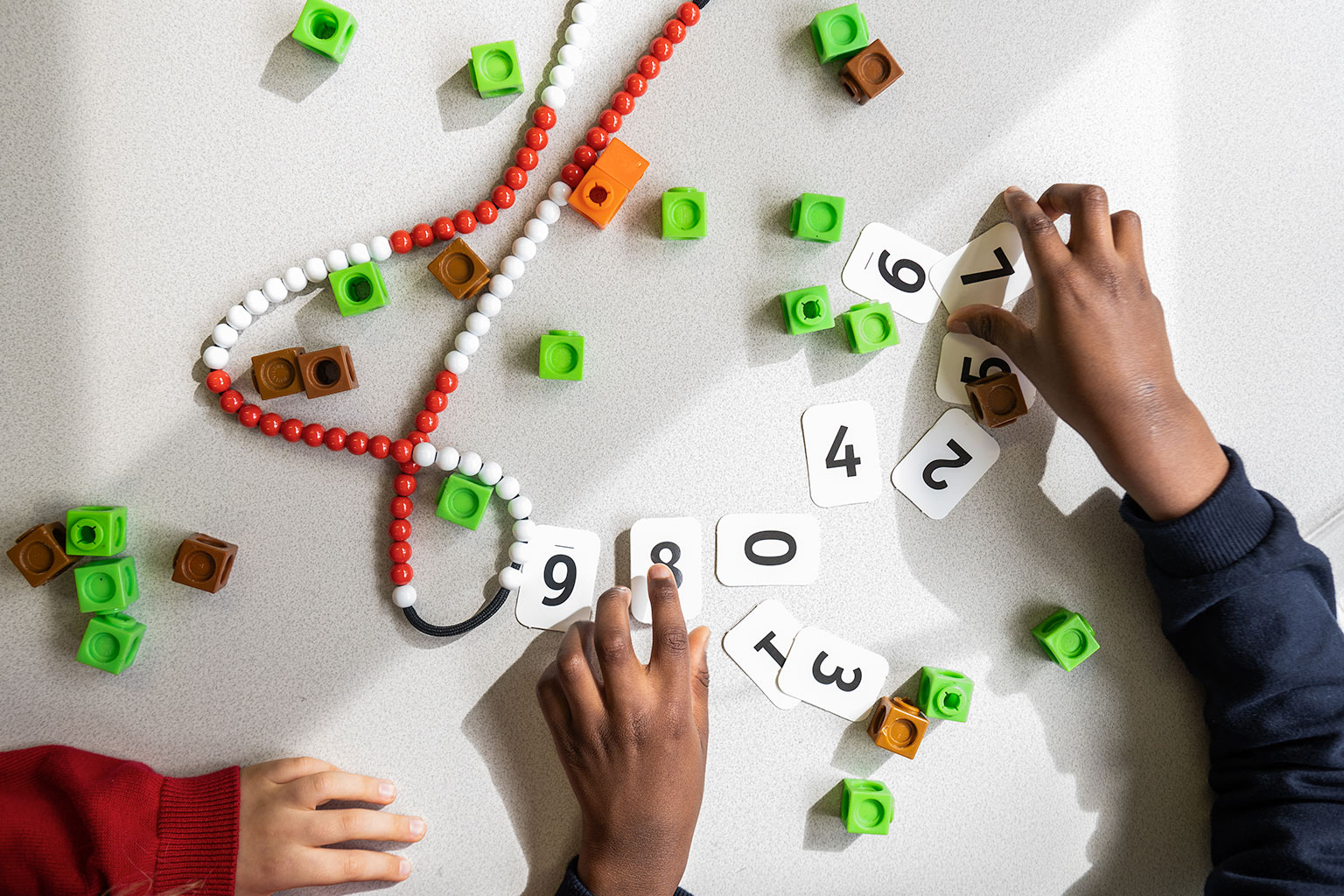Enter youAt St Anthony’s we use the Rising Stars Scheme across the school.
We want children to:-
Develop a positive attitude to mathematics
Think opening, logically and clearly in mathematics with confidence and independence
Develop confidence in mathematics which will allow them to express ideas clearly and fluently using mathematical vocabulary.
Know and use Times Tables effectively
Solve problems with addition, subtraction, multiplication and division
Develop an understanding of the importance of mathematics in everyday life.
Have enthusiasm and enjoyment for maths and awareness that maths is fun!

KEY STAGE 1
The primary focus of mathematics in key stage 1 is to ensure that all pupils develop confidence, mental fluency, reasoning and problem solving with whole numbers, counting and place value.
Children will become increasingly proficient at using addition, subtraction, multiplication and division. Practical resources including numicon and counting objects are used to support learning.
This will aid understanding before moving on to abstract resources including number lines and 100 squares.
LOWER KEY STAGE 2
The main focus of mathematics in lower Key stage 2 is to ensure that pupils become increasingly fluent with whole numbers and the four operations (addition, subtraction, division and multiplication), number facts and place value.
This will ensure pupils develop efficient written and mental methods and perform calculations correctly with increasingly large whole numbers and fractions.
At this stage, pupils should develop their ability to solve a variety of problems, including simple factions and decimal place value.
UPPER KEY STAGE 2
The fundamental focus of mathematics in upper Key stage 2 is for children to master their understanding of number systems and place value to include larger integers.
This will improve the connection that pupils make between multiplication and division with fractions, decimals, percentages and ratio.
By the end of year 6, pupils should be fluent in written methods for all four operations, including long multiplication and division, and in working with factions, decimals and percentages.
At this stage, pupils should develop their ability to solve a wider range of problems, including increasingly complex properties of numbers and arithmetic, and problems demanding efficient written and mental methods of calculation.
The children can then began to choose the most efficient written and mental method to solve problems.
Mathematics Curriculum Details
